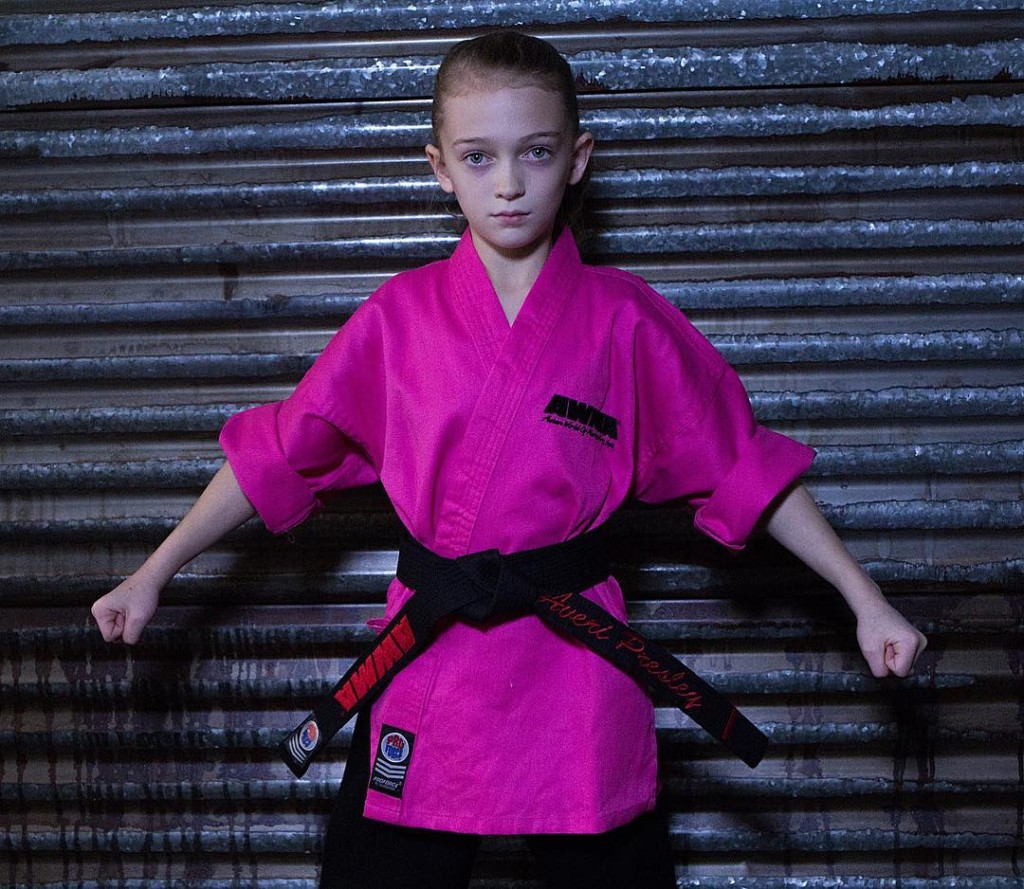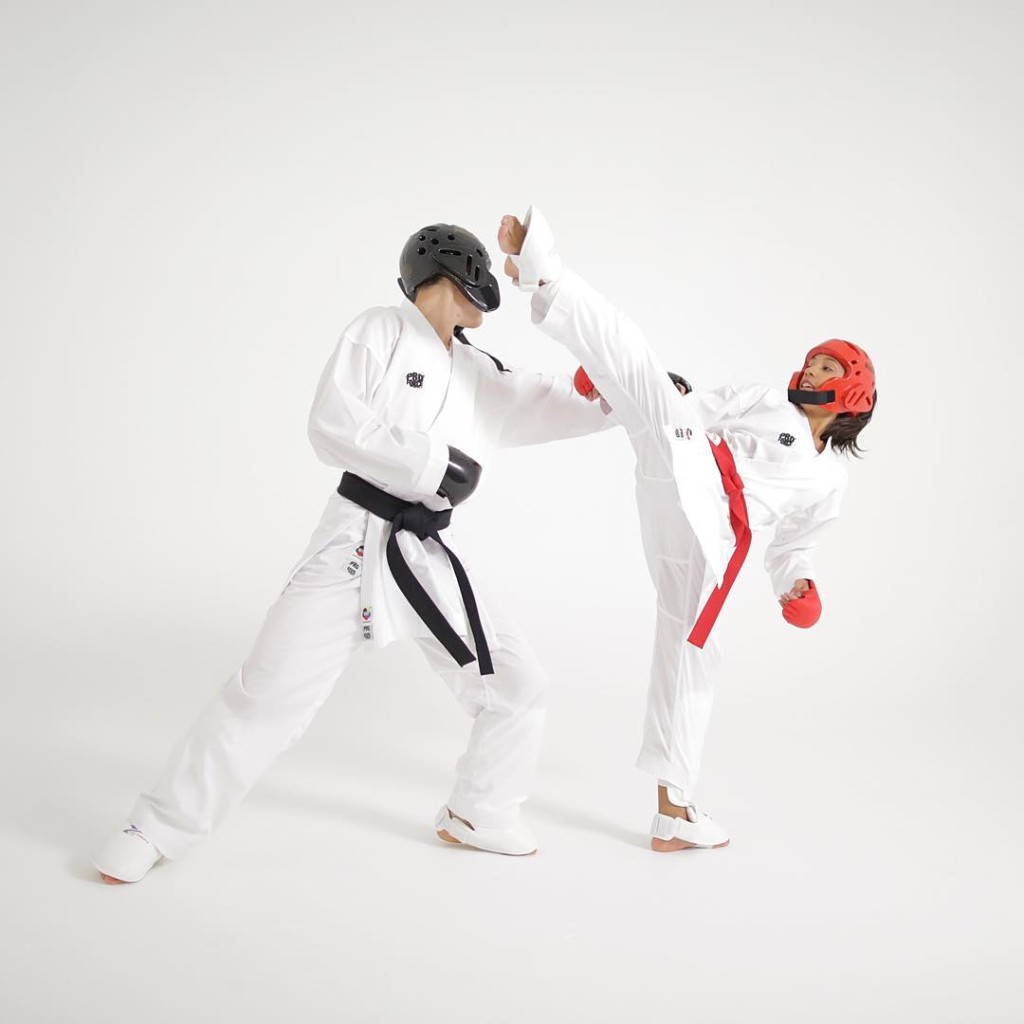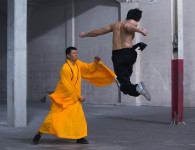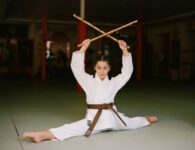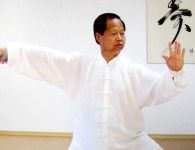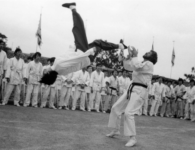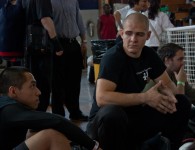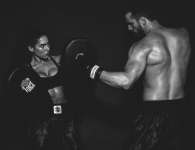Participating in martial arts can have benefits for every age group, and children are no exception. Far from encouraging violence, martial arts lessons for kids can have a positive influence on its students that extends far beyond the mats. Young martial artists have seen everything from their self-worth to their fitness to their school life improve as a result of their training.
Here are five key ways in which children’s martial arts lessons can change their lives for the better:
They’re great for fitness.
Martial arts are hard. Learning techniques is physically demanding, and performing them with any degree of speed, accuracy, and intensity requires a certain level of conditioning. That’s why martial arts classes come with such challenging warm-ups. They’re designed to help students prepare for the work that’s ahead, and to help condition them into athletes who will be able to perform their skills at the best possible level. At a time when children are spending more times indoors than ever before and physical education at school isn’t always guaranteed anymore, martial arts for kids provide a safe and fun outlet to help build strength and cardiovascular fitness.
They encourage healthy self-esteem development.
With graded karate belt levels – and a clearly defined series of skills that must be demonstrated to reach each one of them – martial arts offer kids a number of attainable goals and measurable achievements that will help them develop an appreciation for the hard work that goes into improving oneself. In addition to the pride that comes with earning a new belt, children’s martial arts lessons can help students to feel stronger and more accomplished.
There’s no chance that this will develop into pure ego, though! Training is also about learning respect for others and realizing that there will always be someone stronger and more studied than you. This encourages martial artists to stay humble no matter what grade they achieve or what competition they win.
They promote self-discipline and can help control aggression.
Discipline is incredibly important in martial arts training. You must show respect to your instructor and your fellow students. Your posture must be excellent. Your moves must be performed with precision. Your karate uniforms must be tidy and presentable. Your belt must be properly tied. Each and every detail reinforces the importance of having control over your body and mind, which makes children’s martial arts lessons an excellent influence on young lives.
For students who might be having issues with too much energy, or even behavioral concerns at school, martial arts training can also be a positive and safe outlet for their aggression. A study conducted in 2001, for example, that studied the effects of a school-based martial arts training program found that the boys who took martial arts training had become less impulsive and less aggressive toward others.
They encourage individual growth.
Team sports and competition aren’t for everyone and kids’ martial arts lessons can provide a fun and encouraging alternative to anyone who feels left out, stressed out, or simply uninterested in activities like basketball, baseball, or soccer.
Sure, you’ll be part of a team when you join a gym – and your karate uniforms might match like the members of a sports team – but you won’t be banding together to beat another group each time you step onto the mats. You’ll be working together to improve each other.
Competition is a possibility in martial arts, and students are encouraged to participate, both for the experience itself and for the educational opportunities that come with testing your skills at a tournament. But no good instructor will force you to compete if you’re not comfortable with it or ready for it. That’s because the most important person you’ll compete against in martial arts isn’t your teammate or a rival from another gym. It’s you. Martial arts training is about being a better person than you were in the last class and pushing yourself to move forward at your own time and on your own terms. Which makes martial arts training perfect for kids who feel alienated by or disinterested in team sports.
They teach kids how to defend themselves and conflict resolution.
Martial arts don’t teach kids how to fight, but they will give them the skills they need to fight back. Self-defense is a major component of most martial arts training, and anyone participating will learn how to take care of themselves if and when it is absolutely necessary. But martial arts will give kids teach kids something just as important as how to defend themselves if they need to: the ability to determine when they need to. Conflict resolution is an important component of any martial arts teaching. “One of the first lessons Sifu taught us in kung fu was that words were never grounds for a fight,” Eric C. Stevens writes in 7 Reasons Why Your Child Should Practice Martial Arts. “That advice right there has saved me many times. In the martial arts, you learn that there is no such thing as ‘fighting’ words. Instead, you learn to respond without reacting in the martial arts.”

